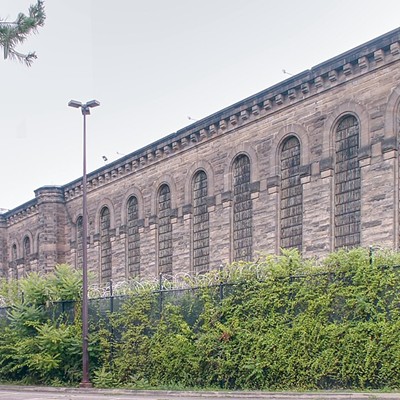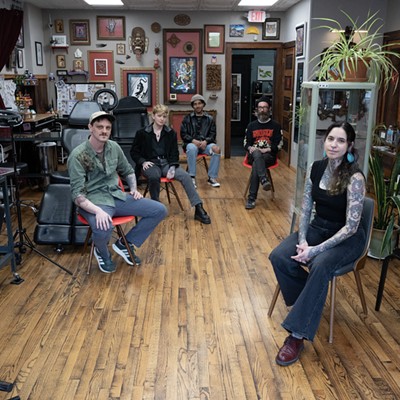Pittsburgh has long been the place where good government goes to die. So for would-be reformers, it was ominous that the Democratic Party hammered out its national platform at the David L. Lawrence Convention Center on Aug. 9. And indeed, the key reform proposed at the session went nowhere -- even though it tried to address the most overlooked form of voter fraud taking place today: the caucus.
Caucuses are used to select a presidential nominee in more than a dozen states including, most famously, Iowa. In a caucus, voters don't cast their votes in a booth, the way they do in primaries. Instead, they gather with other supporters to be counted in person, all at once. The headcount of people in the room determines the winner.
Sounds charming, until you think of the poll workers where you vote -- how they sometimes struggle to handle even a couple of voters an hour. Imagine how they'd handle it if everyone showed up all at once, and you start to see why a caucus may not be the best way to choose a president. Even the caucus states don't trust the process. Iowa, for example, holds a separate primary in June for candidates seeking state and local office. A caucus is good enough to pick the leader of the free world, apparently, but choosing a Clay County supervisor? That's serious business.
Still, caucuses are popular because the political parties, rather than the states, pay for them. In a February New York Times column, Gail Collins reported on the confusion at a caucus gathering, and concluded that such events "exist because they cost the states nothing. And you get what you pay for."
But at the Aug. 9 convention, some attendees weren't buying. One of the planks proposed for the Democratic platform urged that caucuses be abandoned. Because caucuses requires attendance during limited hours, the proposed plank argued, they "disenfranchise the elderly, disabled, shift workers, single parents and others whose circumstances prohibit participation."
This may be the first time in Pittsburgh history that someone has complained elderly voters don't have enough political power. And there is a political back-story here: The reform was proposed by former supporters of Hillary Clinton, who began losing momentum after Barack Obama won the Jan. 2 Iowa caucus.
Had Clinton been the nominee, her backers probably wouldn't be trying to overhaul the system. But that doesn't change the essential fact, which is that caucuses discriminate against voters like us in Pennsylvania.
Iowa's 45 delegates were allocated by 239,000 caucus participants. While Iowa Democrats boasted of a "record turnout," it was only a fraction of the 2.3 million voters that turned out for Pennsylvania's primary, where 158 delegates were at stake. In Iowa then, it took just over 5,000 voters for a candidate to win a delegate; in Pennsylvania, winning a delegate required nearly 15,000 votes. Yet the party counts each delegate the same.
Debates over Iowa's political influence generally focus on the date the caucus is held. Numerous states -- including Pennsylvania -- moved their elections up by weeks or months in order to compete with Iowa for influence. But as the progressive-minded Century Foundation opined last fall, worrying about "the timing of the Iowa caucus obscures the most problematic issue, which is that Iowa has a caucus at all."
Little has been said about that broader issue, and it didn't get much consideration in Pittsburgh's meeting, either: The anti-caucus measure got rejected on procedural grounds. Not surprising: The last thing Democrats need is another debate about the primary process, and anyway -- caucuses helped give the Democratic nominee his victory.
Complaints that the caucus discriminates against old people, in fact, are a tribute to the Obama campaign's brilliance. The Century Foundation found that in general, the system benefits the elderly (who presumably don't have much else to do but sit in school cafeterias all day). Obama turned that complaint on its head, in part by mobilizing young people and students to participate.
That's a hopeful change, of course, one that suggests the system isn't beyond challenge. Locally, progressives have similarly attempted to co-opt sclerotic Democratic institutions here at home -- by trying to capture empty seats in the county's Democratic committee, for example. But often such efforts involve fighting on the enemy's ground, and taking over outmoded institutions is only a half step. Ideally, we'd get rid of them entirely.
Maybe we will -- in some other city, some other year.













